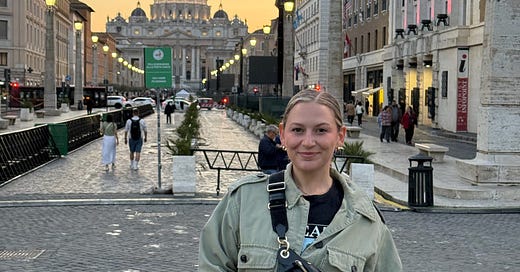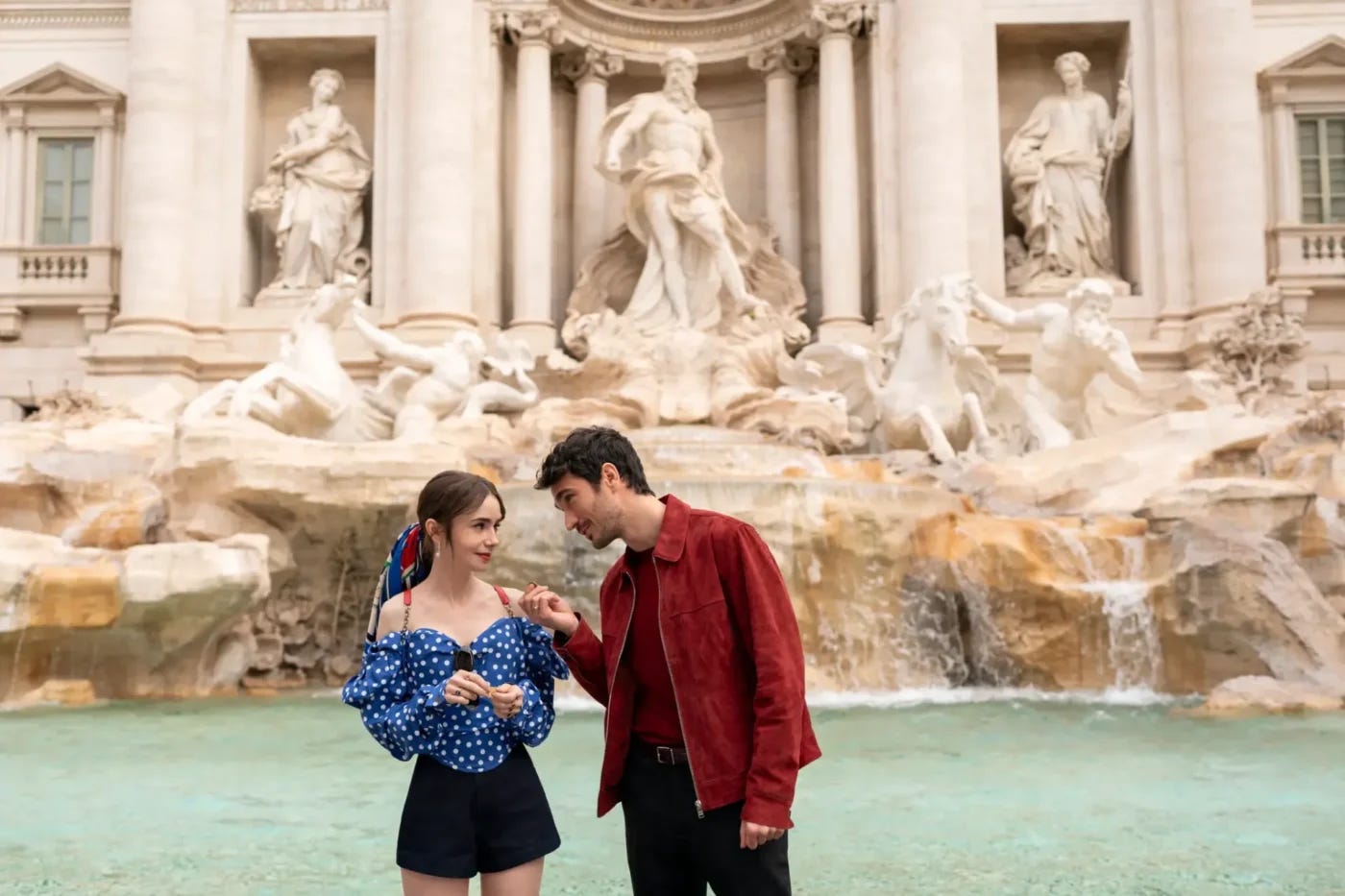Chasing virality is ruining Italy.
As an Italy-based creator, I’ve seen firsthand how algorithm-chasing content is damaging the country I call home.
If you follow me on TikTok or Instagram, the title of this article might come as a surprise—but if you’ve been really paying attention, I would hope it doesn’t.
My background as an Italy content creator
While I started my TikTok account during the COVID-19 pandemic, I was more of a casual viewer and sporadic creator. After being constantly frustrated by the content being shared about Italy online, I committed to posting daily in January 2024. Since then, I have grown the platform to over 100,000 followers. A milestone that seemed so unfathomable after it had taken me all of 2023 to gain my first 1,000.
I didn’t have some big viral moment or wake up from one day to the next with tens of thousands of new followers. I steadily built my audience, day by day, with a clear intention in mind: to share authentic travel tips to Italy without compromising on my values. From this vision I eventually coined my tagline, Italy tips that don’t suck.
So, what does this have to do with virality ruining Italy?
Every year, like clockwork, when high season hits (around April or May), my FYP floods with videos of Italy’s most iconic tourist spots—packed with people all trying to capture their dream trip. The captions are always the same: something dramatic like “Rome in May 😱” or sarcastic takes like “Come to Rome in May, they said. It’ll be less crowded, they said.” Who said that? I’m genuinely asking.
Most of the time, I roll my eyes and keep scrolling. But occasionally, I can’t help myself. I end up commenting something like, “The Trevi Fountain is always crowded in the middle of the day.” And without fail, the creator claps back with, “I’m just showing the reality.”
But here’s the problem: Whose reality are we talking about? Who is coming to Rome, Florence, Venice, or the Amalfi Coast in the middle of high season and expecting it to be empty? And more importantly, who is selling that narrative in the first place?
Instagram vs. reality
As someone who’s lived in Rome for over eight years and worked in tourism the entire time, I feel a certain defensiveness when it comes to how people talk about travel here. Italy, in particular, seems to be held to an impossible standard—one that’s been carefully curated by social media.
There’s this expectation of a picture-perfect, effortlessly romantic dolce vita—and of course, it falls apart the moment someone shows up at the Trevi Fountain at noon and is shocked to find it packed. But what did you expect? A private viewing?
Travelers are always on the hunt for the next “hidden gem,” ironically searching on social media for places that haven’t yet gone viral. But the truth is, these sites have been beloved for centuries, drawing visitors from all over the world—and there’s no sign that’s going to change anytime soon.
Social media can sometimes make us forget that it can never fully capture reality—the vivid, noisy, colorful world beyond our phone screens—because it favors neat, filtered moments. Hate to break it to you, but those shots of Emily and Marcello standing alone at the Trevi Fountain in the middle of the day? Pure fantasy. Either filmed at sunrise or—more likely—closed off entirely for production. Either way, it’s completely unrealistic.
Sorting through the BS
It’s not always easy to tell the difference between genuinely helpful content and content that’s simply trying to go viral. I often remind my followers to approach Italy travel tips online with a critical eye. Don’t even get me started on all the “rules you need to know before coming to Italy” posts. No cappuccino after 11 AM or you’re going straight to jail!
On the flip side of the same coin, as much as Italy is idolized online, I receive a barrage of messages daily asking me to talk about how dangerous Rome is and how they can handle the city that’s overrun with pickpockets. It’s another exaggerated narrative that’s been repeated so often on social media, it’s taken as fact, and it’s just as misleading as the fantasy.
Is petty theft something to be aware of? Absolutely—just like in any major city. But the constant amplification of this messaging online creates an exaggerated sense of danger that, in some cases, even deters people from visiting altogether. It’s just as inaccurate as the idea that you’ll have the Colosseum to yourself on your visit. Both extremes flatten Italy into something it’s not.
So, what do we do about it?
My golden rule for navigating travel content? Follow local creators—and no, not just because I am one! Locals offer an insider’s perspective shaped by lived experience, not just a few days of sightseeing. While general travel creators can be great for inspiration, their tips often come from brief visits or recycled advice, which can miss the nuance and reality of a place.
Please, please think twice before following those repost travel accounts. You know the ones — they have millions of followers but create zero original content, simply resharing the internet’s most viral videos over and over. If you want authentic, useful travel advice, seek out creators who visit, experience, and share their own stories.
The real Italy is waiting for you
At the end of the day, Italy is as vibrant, complex, and beautiful as ever, beyond the viral videos. The crowds, the chaos, the charm—they’re all part of the story. But that story deserves to be told honestly and respectfully.
So when you’re scrolling through travel content, remember to consider the source and be wary of videos that seem specifically engineered to shock or scare you. The real magic of this country isn’t in some picture-perfect 6-second TikTok clip. It’s in the imperfect moments that connect you to the soul of the places you visit.
If you want to truly understand Italy, seek out those who live it every day. Because that is the Italy worth exploring.








After living in Tuscany full time for 12 years, brava! You nailed it and how the algorithm is shaping tourism—and also the country—in disturbing ways. #writelocal 🤣
This was enlightening. I'm a cranky old Gen Xer so I think I'm out of the reach of a lot of influencers and certainly not susceptible to any of these tricks and deceptions. I've always taken the safe approach and just kind of done my thing with very little input other than instinct and perhaps a guide book (which also, to an extent, can be misleading).
People are suckers, honestly. They fall for this stuff.